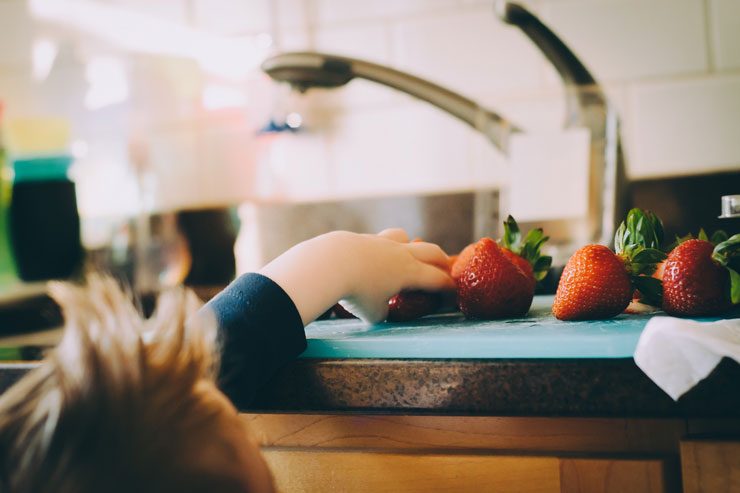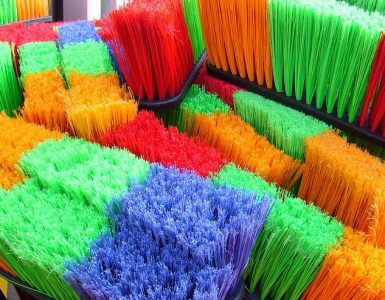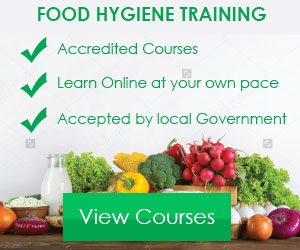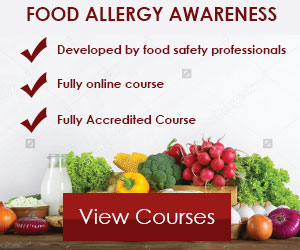Childminders: Registration and Food Safety
Are you planning to start a childminder business that also provides food to kids? If so, you should pay special attention to food safety. The very first thing you should know is that children are a vulnerable group — they are more likely to be affected by food allergy and food poisoning than other groups of people.
In this article, we’re going to cover just about everything you need to know about running a childminder business in England. You will also learn about safety measures you need to follow to avoid food poisoning and the like.
For the most part, you will need to register with Ofsted to successfully run a childminder business in England. It is, however, important to note that you must register with your local authority if you reside in Wales and Northern Ireland.
Registering With Ofsted in England
As an individual who’s planning to start a childminding business that also provides food to children in England, you should know that you only need to do a one-time registration with Osfed. In other words, you do not need to register separately as a food business with your local authority. This is part of the government’s commitment to ensure the smooth running of the business.
So what does this mean? It implies that the information you supplied Ofsted as regards to the registration of your childminding business will be used to register you as a food business. Furthermore, the registration details you provided to Ofsted will be given to your local authority as such; you won’t have to register separately as a food business. With this, childminders who provide food as part of their services will have their premises registered with the environmental health service of their local authority.
Once the registration is complete, a food safety inspection will be carried out by your business’s local authority — they are in charge of food safety in your locality. It’s important to note that you will be contacted by a food safety officer if your childminder business does need an inspection — he or she will arrange a convenient time to meet with you. For the most part, the officer will emphasise food hygiene and food safety to ensure that the food you provide to the children is prepared, stored and handled safely to avoid food poisoning.
Does Single Registration Apply to Nurseries, Care Homes and Schools?
It’s important to note that single registration doesn’t work or apply to nurseries, care homes, and schools since they are run from non-domestic premises. In other words, Ofsted won’t share the registration details with the local authority — you will have to handle that yourself.
All You Need to Know About Preparing, Storing and Handling Food
As a childminder who also provide food to children, it is your responsibility under the law to ensure that food is prepared, stored and handled in compliance with the food hygiene regulations. Among other things, you will have to keep a record of actions carried out to ensure food safety. It’s also great to know that the Food Standards Agency has a produced a special pack for better food hygiene. This special pack is called ‘Safer food, better business for childminders’ (SFBB for childminders).
Furthermore, you can get in touch with your local authority environmental health team to help clarify your responsibilities as regards to food law concerning food safety and hygiene. It’s also good to know that your local authority can provide advice on food safety training courses within your local area.
What About Higher Risk Activities?
Does your childminder service has to do with higher risk food activities? If yes, it’s highly recommended to contact your local authority to learn how you can make those activities safe for children. Such activities include:
- Preparing meals in large quantities on a daily basis
- Producing certain types of homemade foods including baby foods and the like
- Preparing meals for cold storage and reheating
- Specific types of storage activities including vacuum packing. Other examples include jarring or canning flavored oils, homemade chutneys, etc.
Food Hygiene and Safety Tips
Baby Changing Facilities
It’s critical to keep things like soiled diapers and nappies out of food preparation areas — they should never be placed on work surfaces. If you wish to have baby changing facilities, you will need to put adequate controls in place to ensure that food preparation areas are free from contaminants and the like. Moreover, you need to ensure that effective cleaning and disinfection procedures are in place — this is crucial.
Pets
Pets including dogs and cats should be kept out of the kitchen simply because they increase the risk of cross-contamination. How? Well, it happens when harmful bacteria comes in contact with food especially from your hands or other kitchen equipment. It’s highly recommended to show that you have adequate procedures in place to wash and disinfect work surfaces and cooking utensils whenever pets access food preparation areas. In other words, washing and disinfection of food preparation areas and kitchen utensils is crucial — this should be done before any cooking and food handling.
Laundry Facilities
For starters, it’s only normal for laundry facilities to be separate from food preparation areas as doing this reduces the risk of cross-contamination. Now, this might not be possible in many domestic environments, but there’s a still a way around it. So, if you don’t have separate facilities, you will need to show that laundry time is different from food preparation time — you mustn’t do them at the same time. You would also demonstrate that several measures are in place to ensure that soiled clothing and detergents are kept far away from food, work surfaces, and cooking utensils.
Hand Hygiene — Clean Hands Count
It’s critical to ensure that your hands are clean at all times to avoid spreading bacteria around the kitchen and onto food. Be sure to wash your hands thoroughly with soap and water in these instances:
- Before cooking or handling food
- After coming in contact with raw food including meat, poultry, eggs, fish as well as unwashed fruits and vegetables.
- After touching your face or blowing your nose
- After using the restroom or changing diapers
- After taking care of laundry or emptying the bin
- After touching light switches, phones, door handles, and pets
Food Hygiene Courses
Food handlers can also take advantage of courses provided by various training providers. It’s important to note that there’s no requirement for food handlers to take these courses or acquire a food hygiene certificate. However, it’s critical that food handlers are knowledgeable about how to prepare and serve food that is safe for consumption.
Pay Attention to Food Allergens
Today, there are rules in the UK which require all food businesses including childminders to provide allergen information on the foods they sell or give to children. These set of rules which were introduced in 13 December 2014 provides guidance on the 14 allergens that must be listed in the food you prepare. For the most part, food allergens are very risky to customers suffering from food allergies — the condition could be life-threatening in most cases. The worst part is, children are more vulnerable since they’re unlikely to control the foods they eat.
So, as a childminder, it’s your responsibility to ask parents if their kids have any known allergies — this is crucial. Moreover, you should have accurate, consistent and verifiable allergen information for the food you provide or serve to children. It’s also recommended to cross-check ingredients list you use to prepare food to ensure that allergen information is correct and accurate. You also need to provide allergen information for foods purchased from a shop as well as non-prepacked foods. Finally, this information must be made accessible to parents who leave their children in your care.
Here are the 14 allergens under food law:
Note: These are the ones you must declare.
- Cereals including barley, oats, rye, wheat, and others that contain gluten
- Crustaceans including lobsters, crab, and prawns
- Celery
- Fish
- Eggs
- Milk
- Nuts such as almonds, Brazil nuts, pecan nuts, hazel nuts, macadamia nuts, etc.
- Soybeans
- Peanuts
- Mustard
- Sesame
- Molluscs including snails, clams, mussels, squid and whelk oysters
- Lupin
• Sulphur dioxide/sulphates
Eversley Training Offer both Basic Food Hygiene Level 2, Level 3 and Food Allergy Awareness Courses.






























[…] Did you know childminders have to have a childminders food hygiene certificate? […]